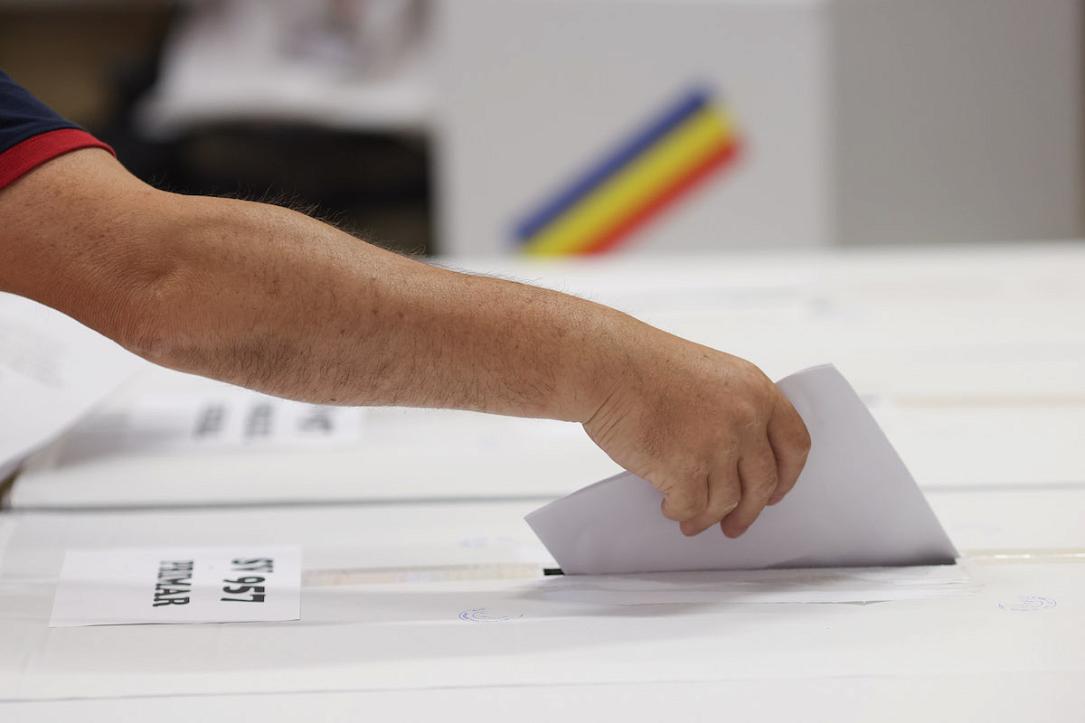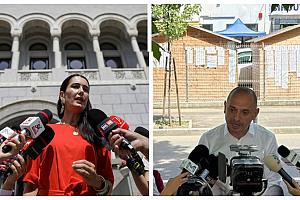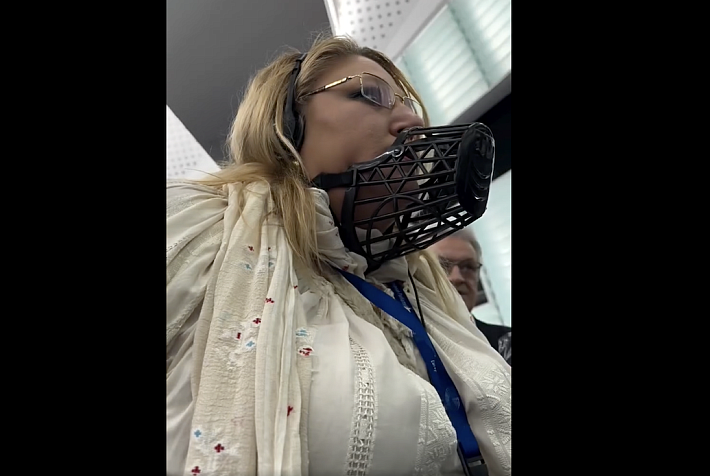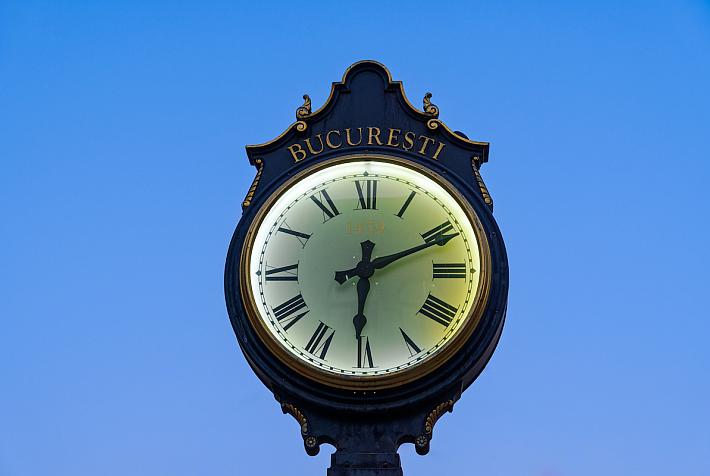Suspicions of electoral fraud deepen in Romania as NGOs uncover 500,000 canceled votes

Suspicions of electoral fraud deepen after the local and European elections held in Romania on June 9, which saw the governing PSD-PNL alliance tighten its grip on city halls across the country and the far-right replace reformist opposition MEPs in the European Union’s legislative. While some incumbent mayors accuse fraud, Expert Forum revealed that a record of almost 500,000 votes were declared null, representing 5.1% of the total.
As the vote combined the elections for the European Parliament with local elections, people were given 5 ballots when they came to vote, which gave rise to confusion and complex counting procedures. In Bucharest, people had to choose between candidates for the general mayor, district mayors, members of the general council of the Municipality of Bucharest and district councils, and European Parliament.
Voter turnout nationwide for the local elections was 49.95% by 10:00 PM on June 9, when the polls closed, but was confirmed at 50.02% in the end.
While most mayors in the country were reconfirmed by voters, all attention in the subsequent days fell on Bucharest’s Districts 1 and 2, where center-right opposition incumbent mayors faced candidates supported by the governing grand coalition. Partial results gave the challengers ahead by a few hundred votes, while the opposition began signaling irregularities in the voting process.
The incumbent mayors of Bucharest's Districts 1 and 2, Clotilde Armand and Radu Mihaiu, both representing USR, have put forward fraud allegations in the context of last Sunday’s local elections and asked for recounts to take place in voting stations with irregularities.
District 1 mayor Clotilde Armand has been among the most vocal on the issue, posting pictures of what she claims is proof of fraud.
“It is very clear that the result in District 1 was compromised and has no legitimacy. USR has notified the OSCE and the EU Committee of Local Elected Representatives about the irregularities in the June 9 elections,” Armand said on Facebook. She also asked for recounts in sections with irregularities.
Back in 2020, another contested election gave the USR candidate the victory in District 1, with about 1,000 votes ahead of then-PSD mayor.
Meanwhile, the PSD-PNL candidate for District 1 City Hall has dismissed any claims of electoral fraud and asked incumbent USR mayor Clotilde Armand to begin the process of handing over the office of mayor, scheduled to happen in the fall. George Tuță, 39, is a PNL member and a former officer in the Romanian Intelligence Service (SRI). He was also chief of staff to former SRI head Eduard Hellvig.
On Thursday, June 13, the Electoral Bureau rejected Armand’s request for a vote recount, citing the lack of proof, Radio Romania Actualitati reported.
However, another USR mayor, Radu Mihaiu, claimed that the same is happening in District 2 of the capital, and also asked for a recount.
“Votes need to be recounted in all polling stations where there are suspicions, not just in Bucharest. There are problems across the country, whether we are talking about Gorj County, where ballot sacks are being searched through trucks, or Olt County, where 70% of the minutes were incorrect, or Districts 1 and 2 in Bucharest. Votes were shifted from the United Right candidates to other candidates, or they were erroneously annulled, and the ballots placed in the urn disappeared. This electoral process was compromised,” he said in a Facebook post.
Other USR leaders expressed shock at the unfolding situation and asked for the resignation of the president of the Electoral Authority, Toni Greblă, himself a former PSD politician appointed to the office by the ruling coalition. Prime minister and PSD head Marcel Ciolacu, in turn, said that the losing mayors are causing a scandal that is unwanted by the voters.
However, allegations of fraud do not stop within the borders of the two districts of the capital. Leaders of REPER, another reformist opposition party, also contested the electoral process.
“In 2500 voting stations across the country, REPER has 0 votes,” said former prime minister Dacian Ciolos. He also asked for the resignation of Toni Greblă and for the recounting of votes wherever suspicions of fraud linger.
“I have brought to the attention of the Office for Democratic Institutions and Human Rights within the OSCE and the European Commission the massive electoral fraud orchestrated by the governing coalition and the Central Electoral Bureau's refusal to order a recount of votes in the polling stations where civil society and citizens reported issues related to the fairness of the electoral process,” said, in turn, REPER MEP Ramona Strugariu.
It is also important to note that according to the latest results, far-right and Eurosceptic party SOS, constructed around controversial senator Diana Iovanovici Șoșoacă, barely crossed the threshold for the European Parliament, gaining 5.04% of votes. Any changes in the final count could throw her below the threshold and keep her out of the office.
Expert Forum, an impartial NGO part of a coalition of organizations that had independent observers during the June 9 elections, noted that the number of null votes was one of the highest reported relative to the number of voters who participated in the electoral process. Out of 9,440,962 votes cast, 488,261 votes were declared null, which means 5.1% of the votes. In 2019, the number was 274,415 out of 9.3 million voters, or 2.89% of the votes.
“This year's situation is comparable to that of 2014, when 5.83% of the votes were declared null. The causes for this high number of null votes are difficult to determine. In some cases, it could be due to errors in filling out the minutes, raising the question of how these minutes were validated by the constituency electoral offices. It could also be a protest vote. Ballots can be nullified if the electoral office members did not apply the control stamp of the polling station on them. Lastly, it could also be the intentional cancellation of some ballots. In any case, the percentage is high,” EFOR said in a press release.
“Although there is no clear threshold at which the number of null votes becomes problematic, we believe that 10% null votes per station can open a discussion about what happened in that station, whether the minutes were filled out correctly, or if there are other signs of irregularities,” the NGO noted.
Other independent observers highlighted irregularities in the voting process ranging from mistakes caused by exhaustion to outright intimidation.
In Bucharest, the most nullified ballots proportionally were in District 2, at 3%, compared to only 1.7% in District 6, 1.85% in District 3, 1.98% in District 1, or 2.1% in District 4. Interestingly, District 2 is the only county/sector with more null votes for the mayor than for the European Parliament elections.
Opposition parties and civil society are expected to protest electoral fraud in front of the headquarters of the Romanian executive on Friday evening, June 14.
(Photo source: Inquam Photos/George Calin)
















